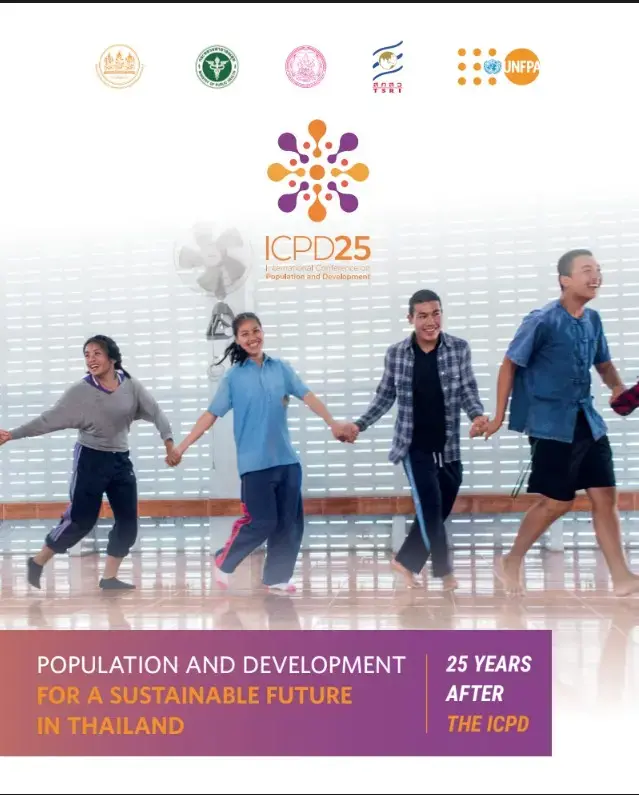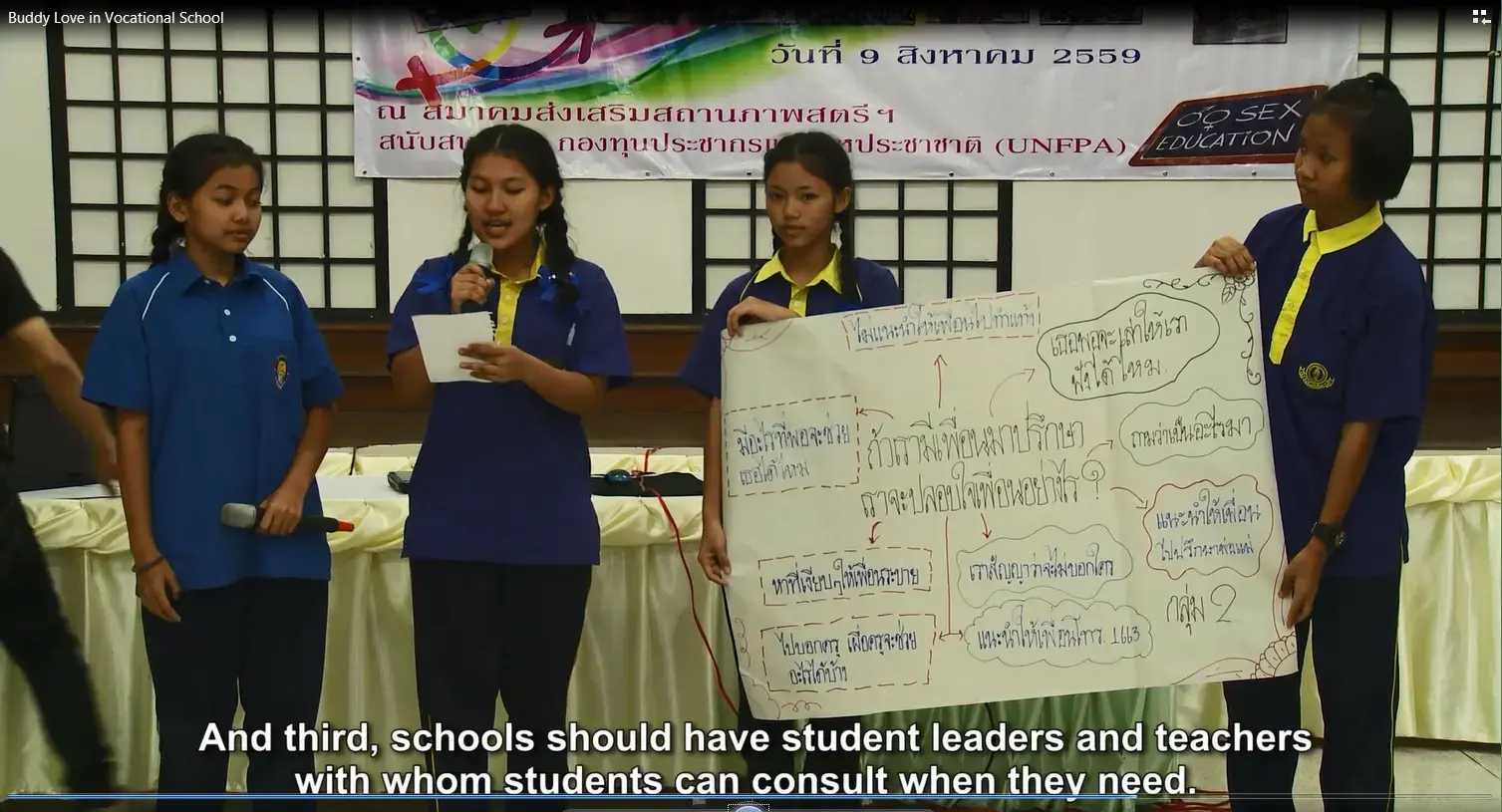Summary of the report:
Thailand has undergone remarkable demographic changes since the time of ICPD 25 years ago. Life expectancy has risen, fertility has fallen to well below replacement level, with a steadily declining number of births. As a result, the share of population in the working ages has increased, but both its share and numbers have now started to decline, and the population is ageing rapidly. These demographic changes bring both challenges and opportunities.
Thailand’s achievements have been noteworthy. It is now categorized by the World Bank as an upper-middle-income country. The health care system is strong. The Universal Health Coverage Initiative – the envy of many other countries aiming to improve their health care systems - has sharply reduced poverty arising from health emergencies; safe motherhood advances have led to very low maternal death rates; effective provision of family planning services has reduced unmet need for family planning to low levels; HIV prevalence has been much reduced. On the education front, secondary schooling is now accessible to most children, including those residing in remote areas; and the number of Thai workers with a bachelors degree has doubled in each recent decade.
This progress can be celebrated. Yet the challenges Thailand faces are immense. The key to becoming a developed country with stability, prosperity and sustainability by 2037 is investment in human capital development, notably in the areas of education and health of the Thai people. In the face of a shrinking labour force, productivity of workers must rise significantly. Moving the economy up the value chain will require a much more skilled workforce. In a competitive world, it is necessary to aim high, and everything possible needs to be done to raise educational performance in Thailand and level the playing field by providing better educational opportunities for those disadvantaged by poverty or inaccessibility.
Thailand has responded positively to the ICPD vision for a comprehensive approach to population and development, including enabling people to make informed choices about their sexual and reproductive health as a matter of fundamental human rights. However, more can be done to broaden the concept of family planning to cover the variety of reproductive futures based on individuals’ and couples’ choices according to their specific fertility goals.
Overall, while recognizing that more needs to be done in many spheres, Thailand’s planners are confident that they are moving in the right direction in formulating and implementing policies relating to population and development that will ensure a sustainable future for the country.
See Policy brief of the report here.
Share this page with this QR Code:






